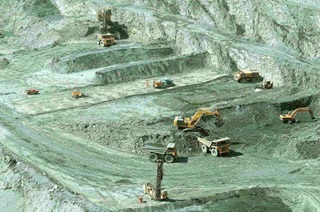
Keeping costs down while complying with environmental legislation
Operators work in some of the most demanding environments – quite literally at the coal face – to produce the asphalt that is used to construct over 95% of the country’s roads.* But the energy-hungry processes used to produce this material for the nation’s paths, pavements, playgrounds and car parks carries a heavy environmental price, emitting almost a million tonnes of harmful CO2 each year.**
Businesses face the challenge of meeting exacting customer demands while at the same time complying with tough environmental legislation like the Medium Combustion Plant Directive (MCPD).***
Switching to Calor LPG can help with your sustainability targets, cut your carbon emissions compared to other fossil fuels and keep your operations as efficient as ever.

*Carbon Trust Industrial Energy Efficiency Accelerator – Guide to the Asphalt Sector (2010)
**The asphalt sector emitted 830,000 tonnes of CO2 (tCO2) in 2007 from the manufacture of 26 million tonnes (Mt) of product in 350 plants – Source: Mineral Products Association www.mineralproducts.org
***Applies to plants with a rated thermal input equal to or greater than 1 megawatt (MWth) and less than 50 MWth.
****Table based on DESNZ (Department for Energy Security and Net Zero) Greenhouse gas reporting: conversion factors 2023.
*****A telemetry unit will need to be installed by Calor, for the purpose of enabling Calor to remotely measure the quantity of LPG contained within the bulk tank(s) and schedule deliveries accordingly. Subject to the telemetry unit being able to receive signal. Direct-debit payment plan required.